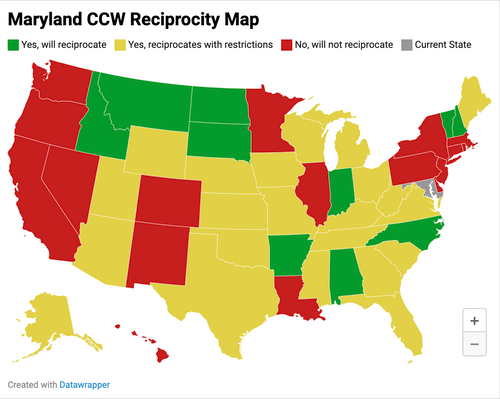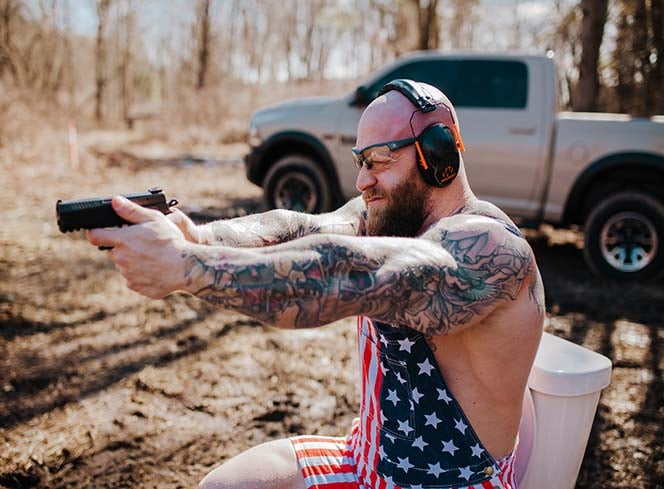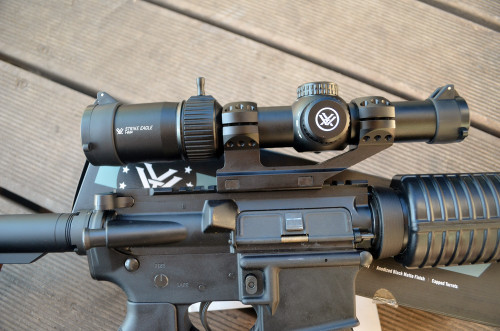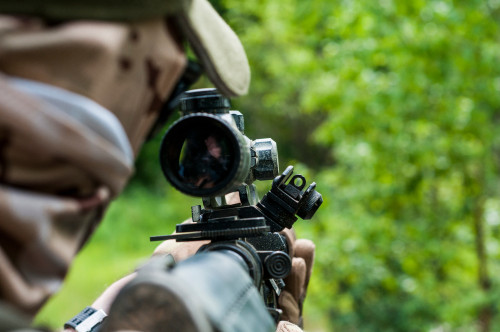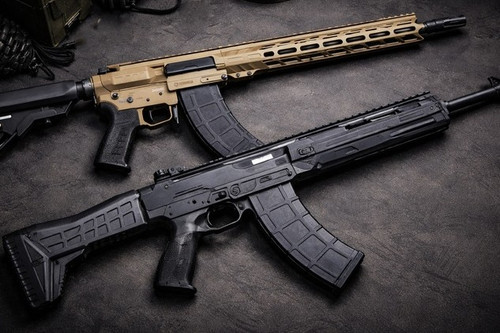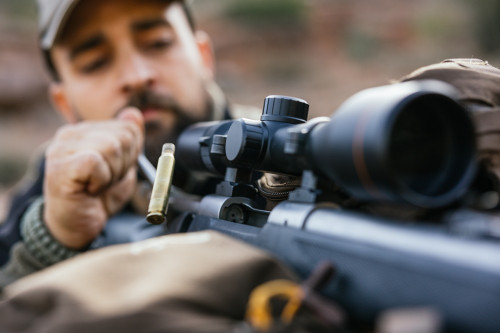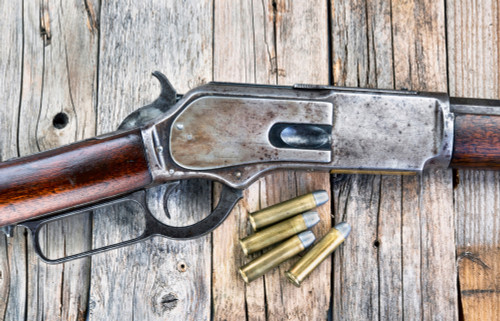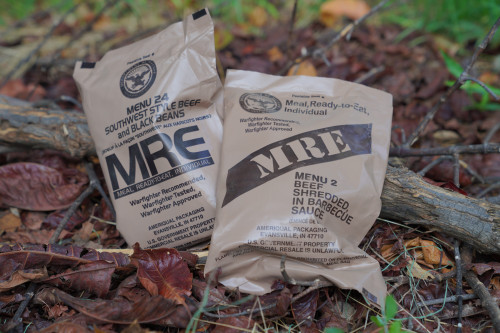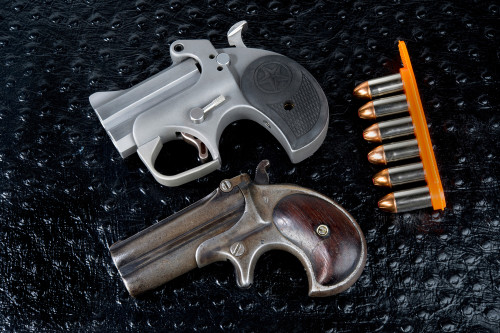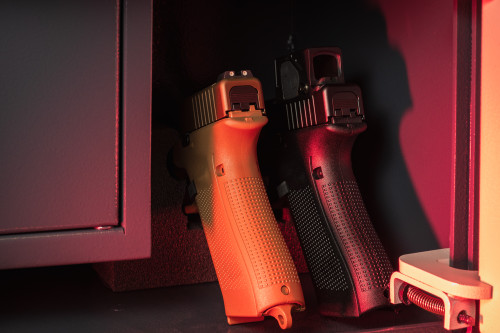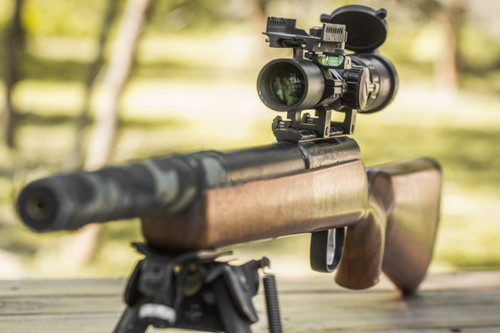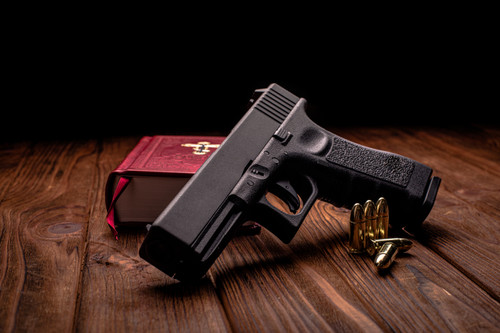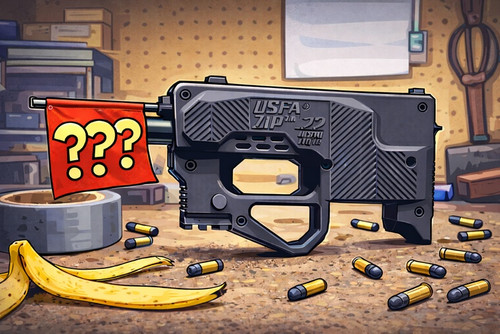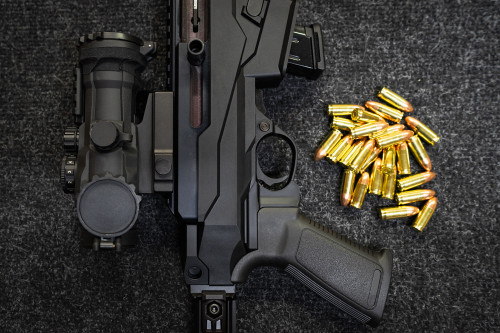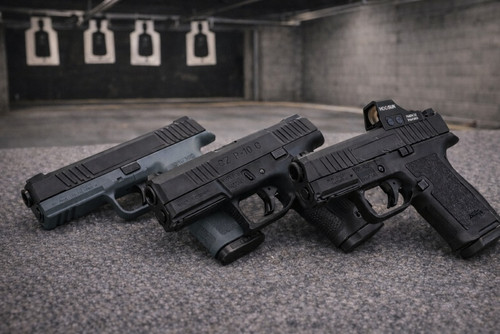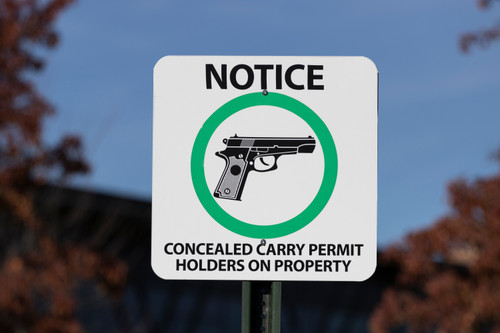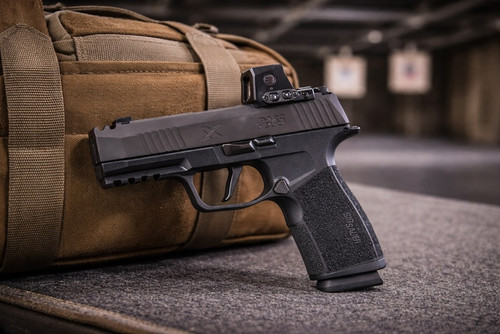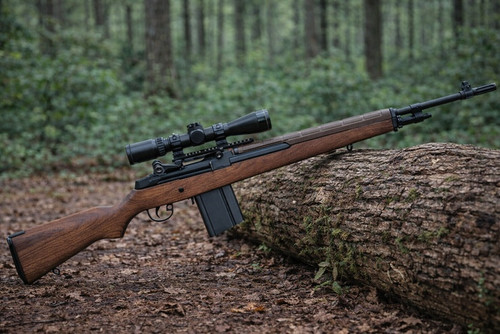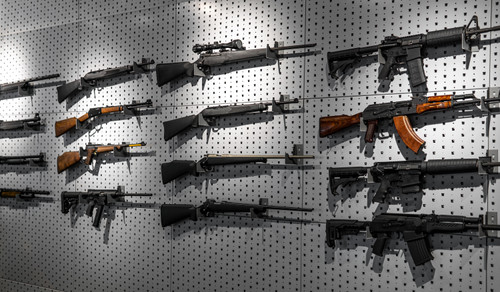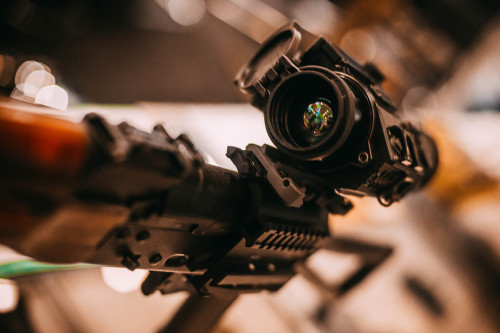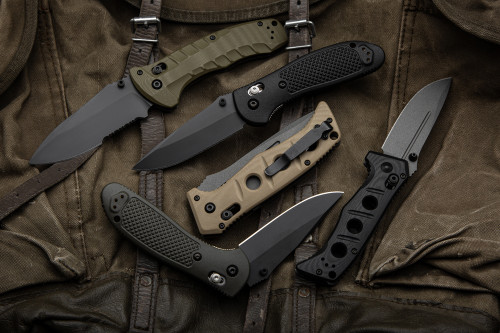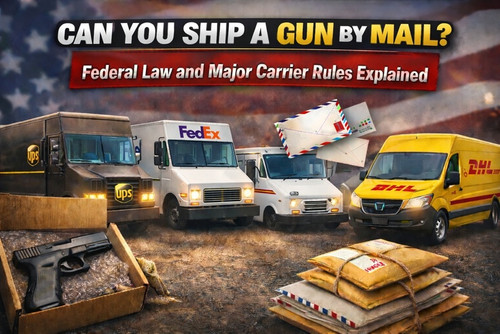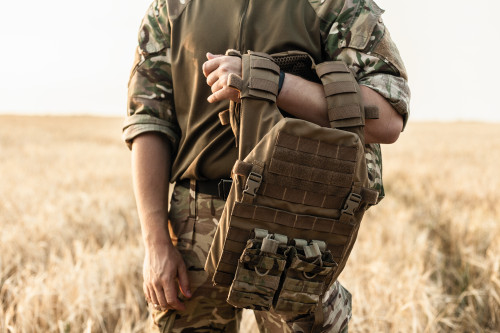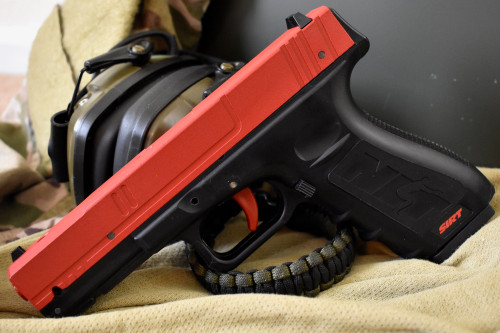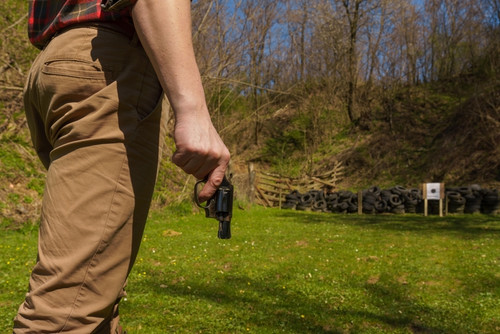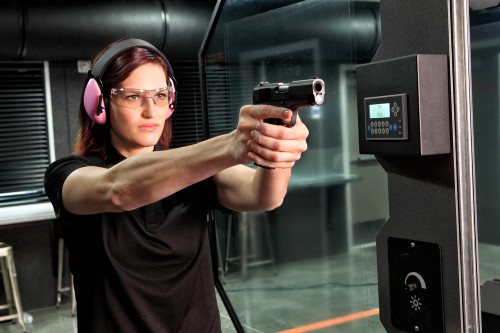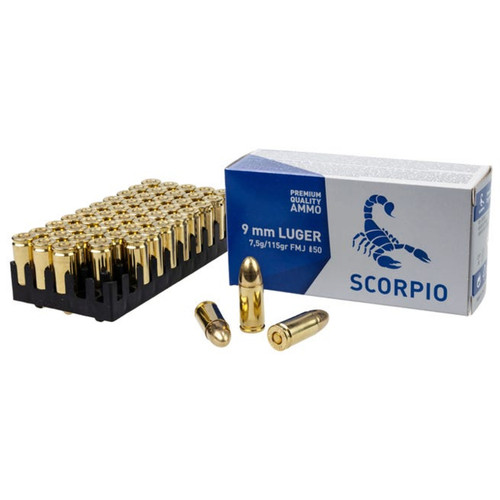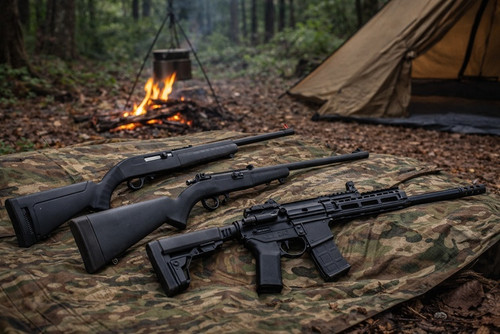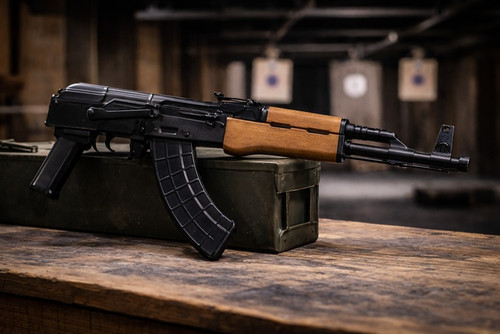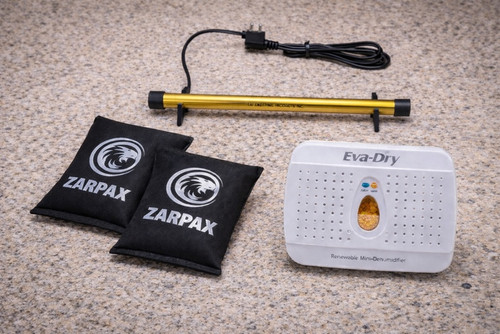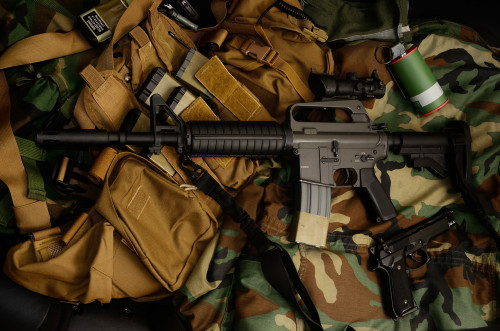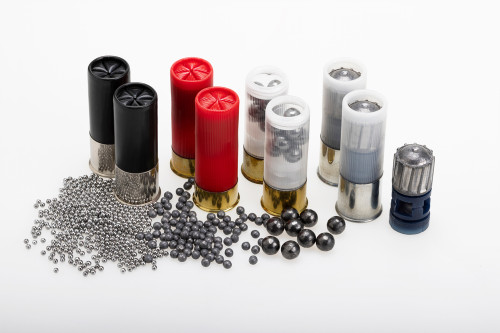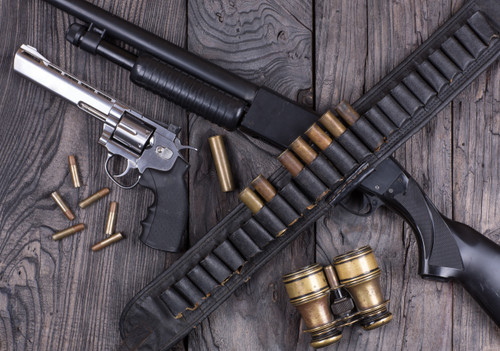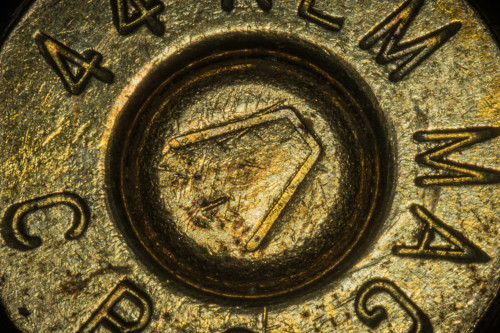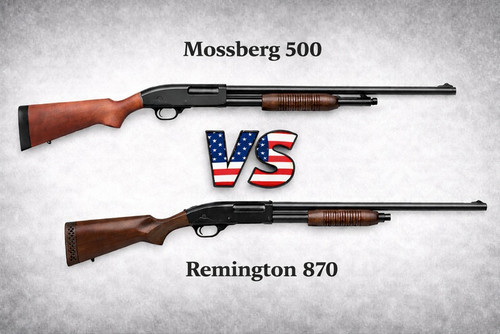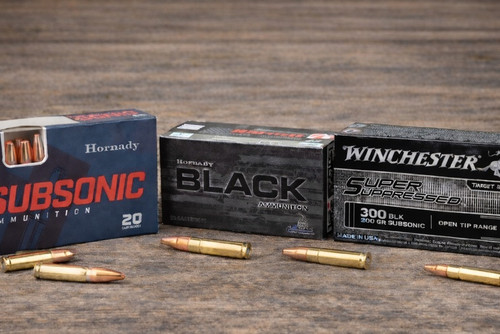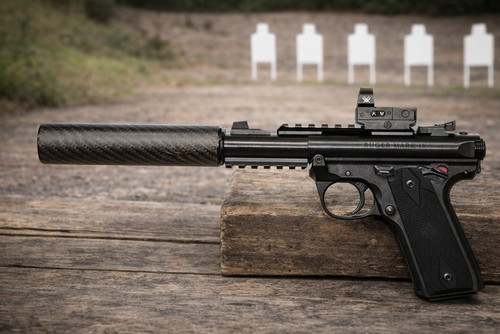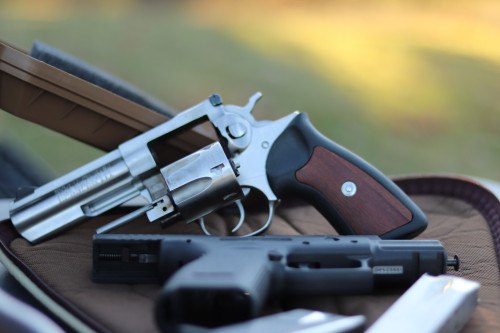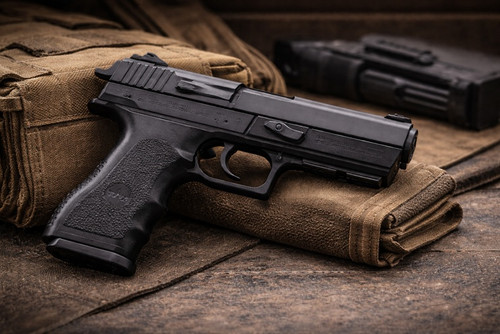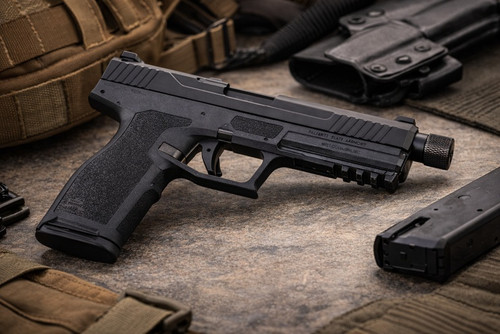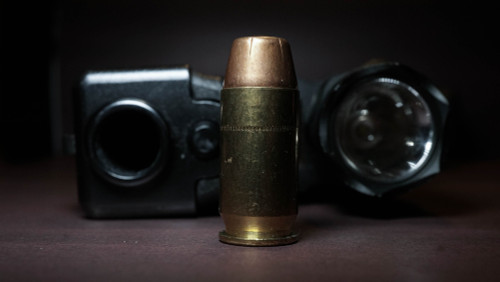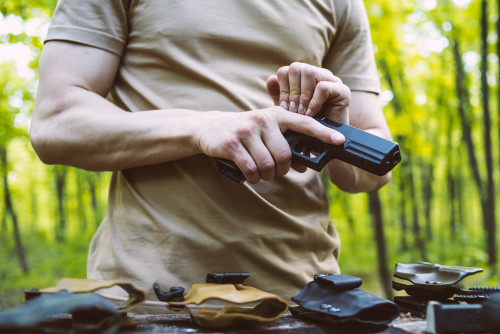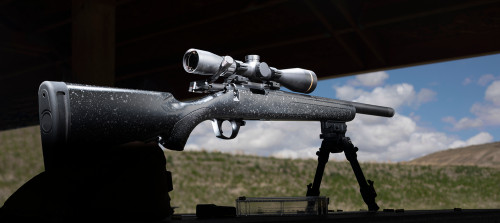Maryland gun laws are strict. A recent review by the Maryland legislature concluded that violent crime had “increased alarmingly in recent years.” As most violent crime involves the illegal use of handguns, lawmakers (in their infinite wisdom) concluded that the solution to rampant violent crime was to create more laws.
Of course, criminals are unaffected by these changes. But for law-abiding citizens, the process of arming and defending yourself is now much more difficult. However, if you’re willing to put in the time, do the paperwork, get the training, pay the fees, and check all the necessary boxes, you can legally carry a concealed firearm in Maryland — just have patience along the way.
In this guide, we’ll cover everything you need to know about concealed carry in Maryland including reciprocity with other states, how to get a license, and specific rules regarding the purchase, carry, and use of a firearm in the “Old Line State.”
Legal Disclaimer
This article doesn’t constitute legal advice. We’re communicating informally here to make this information easy to grasp and to avoid getting lost in legal mumbo jumbo. With that said, it’s the legal mumbo jumbo that may decide your fate in court. Be prepared.
We’ll be as accurate as we can, but for clarification, cross-check the information here with actual laws, which we’ve linked throughout the article. If you have additional questions or concerns, we recommend consulting with an attorney experienced in the self-defense laws of Maryland.
1. Quick Stats
- Number of other state permits honored in Maryland: 0
- Number of states that honor Maryland permits: 32
- Percentage of people licensed for concealed carry in Maryland: 0.4%
- Number of issued licenses in Maryland: 86,000
- Minimum age to carry a concealed firearm in Maryland: 21
- Maryland concealed carry license validity: Variable
2. Maryland Concealed Carry Overview
This section provides an overview of concealed carry laws in Maryland.
Wear/Carry Handgun Permit
Maryland is not a constitutional carry or permitless carry state. To legally carry a concealed firearm, you must qualify for and obtain a Maryland Wear/Carry Handgun Permit (WCHP). Open carry is prohibited throughout the state.
Maryland is a shall-issue state, which means anyone who meets the qualifications can technically obtain a WCHP. You don’t need to provide proof to the government that you have a particular need for a concealed firearm. WCHPs are processed and issued by the Maryland State Police. Maryland also issues permits to non-residents.
Only law enforcement has access to the concealed carry registry. However, your WCHP is not linked to your driver’s license, so law enforcement will not be immediately notified of your concealed carry status during a routine traffic stop.
Detailed information about obtaining a WCHP can be found in section 7 of this article.
MD Code, Public Safety 5-306
Preemption
The Maryland government retains full preemption rights over firearm laws throughout the state.
However, local governments have the right to enact additional ordinances that regulate firearms in certain conditions. Usually, these ordinances will be clearly posted, but always check the regulations in your area to stay on the right side of the law.
MD Code, Criminal Law 4-209
Red Flag Law
Maryland has a red flag law, also called an extreme risk protection order (ERPO), which prevents the subject of the order from buying, possessing, or transporting firearms. The purpose of the ERPO is to prevent imminent catastrophe.
Maryland accepts petitions from almost anyone close to the subject including family members, spouses, cohabitants, medical professionals, and law enforcement officers.
If approved by the court, the subject of the ERPO must surrender all firearms to law enforcement for the duration of the order.
MD Code, Public Safety 5-601 and 5-602
Other Weapons
The Maryland WCHP exclusively regulates firearms and doesn't apply to other weapons.
However, you can legally carry “weapons” without a permit for reasonable self-defense purposes. In this context, “weapons” do not include firearms (which are obviously regulated separately) but do include non-lethal self-defense tools such as tasers, stun guns, pepper spray, etc.
MD Code, Criminal Law 4-101 and 4-109
Magazine Limits
Maryland law expressly prohibits the sale, purchase, receipt, or transfer of magazines that can hold more than 10 rounds. While the law doesn’t specifically say anything about possession, we recommend sticking to the 10-round magazine limit and not antagonizing police officers with your gotcha legal knowledge — as much as cops love that.
If you need more ammo, just carry extra mags.
MD Code, Criminal Law 4-305
Ammunition Restrictions
Maryland has no state laws restricting ammunition.
3. Maryland Concealed Carry Reciprocity
Every state has different rules and licensing procedures for concealed carry. However, some states either fully or partially recognize the concealed carry permits of other states. Here’s how Maryland fits into the national concealed carry picture:
State Permits Honored by Maryland
Maryland does not honor permits from any other state. The only way to legally carry a concealed firearm in Maryland is with a Maryland-issued WCHP — no exceptions.
States Fully Honoring Maryland WCHP
The states below fully honor the Maryland WCHP, which means WCHP holders can carry a concealed firearm in that state without seeking any additional approval. However, you must be aware of and follow the gun laws in any state you visit.
- Alabama
- Arkansas
- Idaho
- Indiana
- Montana
- New Hampshire
- North Carolina
- North Dakota
- South Dakota
- Vermont
States Partially Honoring Maryland WCHP
The states below honor the Maryland WCHP, but with some restrictions that vary by state. Be sure to check the conditions of the state you’re traveling to.
- Alaska
- Arizona
- Florida
- Georgia
- Iowa
- Kansas
- Kentucky
- Maine
- Michigan
- Mississippi
- Missouri
- Nebraska
- Ohio
- Oklahoma
- South Carolina
- Tennessee
- Texas
- Utah
- Virginia
- West Virginia
- Wisconsin
- Wyoming
States Not Honoring Maryland WCHP
These states do not honor the Maryland WCHP:
- California
- Colorado
- Connecticut
- Delaware
- District of Columbia
- Hawaii
- Illinois
- Louisiana
- Massachusetts
- Minnesota
- Nevada
- New Jersey
- New Mexico
- New York
- Oregon
- Pennsylvania
- Rhode Island
- Washington
4. Maryland Rules for Buying a Gun
Here is an overview of the rules related to buying a handgun in Maryland.
Purchase Permit
To legally buy, rent, or otherwise receive a handgun in Maryland, you must first obtain a Handgun Qualification License (HQL), which is a distinct permit from the WCHP and must be acquired separately.
To obtain an HQL, you must be 21 years old, be a Maryland resident, and complete a four-hour training course that covers state firearm laws, home firearm safety, and handgun operation. You must also safely demonstrate the ability to fire a handgun. State-approved instructors can be found here. The qualification process includes a background check.
The HQL is issued by the Maryland State Police, and the application process must be completed through their online portal. You will be either approved or denied within 30 days. The application fee is $50, and the license is valid for 10 years.
In addition to the HQL, you must also submit a firearm purchase application for each firearm purchase you want to make. This application can also be found on the state police online portal.
MD Code, Public Safety 5-117.1
Background Checks
Criminal history records checks are required as part of the HQL process. WCHP holders are not exempt from this requirement.
MD Code, Public Safety 5-117.1
Waiting Period
Maryland mandates a seven-day waiting period for handgun transfers following purchase. During this time, the state retains the right to approve or disapprove your firearm purchase application.
MD Code, Public Safety 5-123
Registration
Maryland requires citizens to register all handguns with the state police. New gun purchases are registered as part of the sales process, but if you just moved to the state, you have to register your guns within 90 days. Use the online portal to complete the registration process.
MD Code, Public Safety 5-143
Approved Handgun Roster
Only handguns on the approved roster can be offered for sale. The approved list can be found through the online portal. Here is a list of disapproved guns.
The key here is that this list is about guns that can be manufactured and sold in the state, and not about what gun you can have. If you’re buying a gun in Maryland legally, this won’t be a problem, as disapproved guns won’t be available at legitimate gun shops. If you brought a gun into Maryland that you bought while a resident of another state, it also shouldn’t be a problem.
MD Code, Public Safety 5-405
Minimum Age for Purchase
You must be at least 21 years old to legally purchase a handgun in Maryland.
MD Code, Public Safety 5-134
5. Maryland Rules for Carrying a Gun
This is an overview of rules and laws related to carrying a firearm in Maryland. Maryland law also includes the term “wear” in addition to “carry,” but for our purposes, they mean the same thing.
Basic Guidelines
Carrying a concealed handgun in Maryland requires a WCHP, which you must have with you at all times when carrying concealed. Open carry is not allowed. However, no permit is required to carry on your private property or at a business you own.
In this context, to “carry” a gun means having the gun on your person or readily accessible in something like a briefcase or backpack. This also includes having the gun accessible in your vehicle. If the gun is unloaded and locked in the trunk, you’re not “carrying” it, you’re just “possessing” or “ transporting” it.
MD Code, Public Safety, 5-308
Prohibited Carry Locations
While the WCHP broadly gives you the right to carry a concealed handgun, there are specific locations that are off-limits due to either state law or local ordinance.
Here are a few key locations where concealed carry is prohibited, even with a WCHP:
- Public schools (MD Code, Criminal Law 4-102)
- State-owned public buildings and grounds (COMAR 04.05.01.03)
- State parks and forests (unless lawfully hunting) (COMAR 08.07.01.04)
- Community adult rehabilitation centers (COMAR 12.02.03.10)
- Legislative buildings (SC 2-1702)
- Child \care centers (COMAR 13A.16.10.04)
- Within 1,000 feet of demonstrations and protests (MD Code, Criminal Law 4-208)
- Government buildings and public infrastructure areas (Gun Safety Act of 2023)
- Special purpose areas (e.g., bars, stadiums, museums, etc.) (Gun Safety Act of 2023)
- Healthcare facilities (Gun Safety Act of 2023)
- Any private property without explicit approval (Gun Safety Act of 2023)
- Any place prohibited by local law
- Any place prohibited by federal law
However, as of May 2024 when this article was written, the issue of exactly where WCHP holders can legally carry is part of an active legal battle. The Maryland Gun Safety Act of 2023 imposed additional restrictions on carry locations, but then some of those restrictions were temporarily lifted after being challenged in federal court.
The only good advice here is to keep your eyes on the news to know exactly what’s legal as this situation unfolds.
Duty To Inform Police
Maryland has no law that suggests you have a duty to inform the police that you’re carrying a concealed weapon or have a weapon in your car. However, if they ask if you’re carrying a gun, you can’t lie. You can decline to answer, but lying to the police is a crime.
If the police happen to spot a weapon on your person or in your car, they can ask to see your WCHP, and you must present it.
Carrying in Vehicle
With a WCHP, you can legally carry a concealed handgun in your vehicle. Without a permit, you can only transport a handgun between specific locations such as residences, a business you own, or a gun repair shop.
If you’re transporting a gun through Maryland on the highway, the gun must be unloaded, in an enclosed case, and no ammo must be accessible from the passenger compartment. Remember, Maryland does not recognize concealed carry permits from any other state.
MD Code, Criminal Law 4-203
Carrying While Intoxicated
Even with a WCHP, you cannot carry a firearm in public while under the influence of drugs or alcohol. Not only is this illegal, it’s also stupid. The purpose of a gun is to keep you and the people around you safe, which you can’t do if you’re high or drunk. If you want to get wasted in public, leave your gun at home and outsource your security to more serious people.
MD Code, Public Safety 5-314
Minimum Age to Carry
In general, you must be at least 21 years old to obtain a WCHP and carry a concealed handgun in Maryland. However, there are specific exceptions for job-related situations where you might need to carry, in which case you need to be at least 18.
MD Code, Public Safety 5-133
6. Maryland Rules for Using a Gun
This is an overview of rules and laws related to using a firearm in Maryland.
Basic Guidelines
The only way to legally use deadly force in Maryland is to defend yourself or someone else against an imminent threat of great bodily harm or death. You cannot use deadly force to defend property. Shooting someone with a handgun is always considered deadly force whether the person who is shot actually dies or not.
Specifically, a claim of self-defense with deadly force must meet the following criteria:
- You must not be the aggressor and you must not have provoked the conflict
- You must have reasonably believed that you (or someone else) was in immediate danger of serious bodily harm or death (which will be determined by a jury)
- You must make a jury believe that you genuinely believed your reasonable belief of a threat was real (good luck with that)
- You must have had no option to retreat (except when at home)
The law uses the reasonable person test, which asks whether a theoretically reasonable person in the same situation would behave as you did.
Remember, even if you’re forced to make a split-second decision, you’ll be held accountable for that choice. The keys to legal and effective self-defense are skill development, scenario planning, and comprehensive knowledge of the law — and avoiding bad situations entirely.
Training is the only antidote we have against the mind-bending stress and insanity of gun combat. The better trained you are, the more likely you will be to make the best possible decision in the worst moment of your life.
MD House Bill 1214
Stand Your Ground
Maryland is not a Stand Your Ground state. Based on common law and case law, Maryland operates under the assumption that you have a duty to retreat if faced with a threat — even if you have the legal right to be there. Only if retreat is impossible (or increases the danger) are you then legally justified to use deadly force to defend yourself or others.
MD House Bill 1214
Castle Doctrine
The one place you do not have a duty to retreat is against home invaders, also known as castle doctrine. The law operates under the assumption that in your home there’s nowhere to retreat to, so you have the right to stand your ground and fight.
Specifically, to use deadly force in self-defense in the context of castle doctrine, the following criteria must be met:
- The intruder has made an unlawful entry into your dwelling
- You have a reasonable belief that the other person intends to commit a crime and will use physical force (no matter how slight) against an occupant
NOTE: Castle doctrine doesn’t apply if the “intruder” has a legal right to be at the location. In other words, you can’t tell your roommate or significant other to get lost, and then start blasting away when they return. This also protects law enforcement officers, firefighters, and emergency responders performing official duties in or around your dwelling.
MD House Bill 1214
Defense of Property
Generally, you cannot use deadly force to defend property (i.e. your stuff) because it is not technically self-defense. If you see someone stealing your car out of the driveway, you can’t shoot them (as much as you might want to).
MD House Bill 1214
Brandishing
Brandishing is not specifically mentioned in Maryland law, but rest assured, if you’re waving a gun around for any reason other than self-defense against a deadly threat, you’re probably going to be in trouble.
Besides, it’s important to remember that your handgun is not a tool of coercion or crowd control or to express your righteous indignation. You’re not a police officer. The only legal reason to draw your gun in public is to neutralize a dangerous goblin threatening you or others. That’s it. There are no other circumstances.
Liability
If you legally use deadly force for self-defense in the context described above, you’re immune from criminal and civil prosecution.
MD House Bill 1214 and MD Code, Courts and Judicial Proceedings 5-808
A Note on Using Your Gun
Remember, the use of deadly force is the central issue of concealed carry. Everything else we cover here could result in fines, misdemeanors, or maybe felonies in rare cases — not life-ending stakes.
Deadly force is an entirely different level of seriousness. What you do in a split second could be the difference between going home to see your family and spending a few decades in prison. It might seem cool to carry a gun, but never forget that pulling the trigger is serious business with the highest possible stakes. If you can avoid it, you must. Prepare accordingly.
7. How To Get a Maryland WCHP
The following is a step-by-step guide for obtaining a WCHP in Maryland. Check out the Maryland State Police WCHP webpage for the latest information and most up-to-date requirements.
Step 1: Determine Eligibility
First, determine if you’re eligible to obtain a WCHP. To be eligible, you must:
- Be at least 21 years old (or at least 18 if your job requires it)
- Not be a convicted felon with a sentence of one year or more
- Not be convicted of any offense with a sentence of two years or more
- Not have been convicted of a drug-related crime
- Not be addicted to drugs or alcohol
- Not have exhibited a propensity for violence
- Not otherwise be prohibited from carrying a gun by federal law
MD Code, Public Safety 5-306
Step 2: Complete Firearms Training
Next, you need to complete a state-approved firearms training course. The course must be a minimum of 16 hours and include instruction in the following areas:
- State and federal firearm laws
- Home firearm safety
- Handgun mechanisms and operation
- Conflict de-escalation and resolution
- Anger management
- Suicide prevention
- Live firearm qualification with 70% accuracy
You can find a qualified instructor here. If you have previous experience with a handgun (e.g., military, law enforcement, etc.), you might be exempt from this training requirement.
MD House Bill 824
Step 3: Get Fingerprinted
Your WCHP application must include a complete set of electronic fingerprints, which you can obtain at one of the locations found here. You’ll need to make an appointment first, which can be done on the website. The cost is $20.
Step 4: Apply for the WCHP
Now you’re ready to submit your WCHP application through the Maryland State Police’s online portal. Create an account, log in, and follow the instructions. This is the only way to do it as they no longer accept paper applications. You’ll need to submit the following:
- Your firearms training certificate
- Your electronic fingerprints
- Two passport-style photographs
You’ll also pay the fee through the portal, which is $125.
The application process is the same for non-residents.
Step 5: Wait for Notification
The State Police have up to 90 days to process your application. You’ll be notified by email if your application is approved or denied.
Just to keep things interesting, the Maryland WCHP expires on the last day of your birth month two years after the permit is issued.
8. Maryland WCHP Management
Here’s how to manage your WCHP once it’s active:
Renewal
You are responsible for keeping track of your permit expiration, though you should receive a reminder from the online system. You can begin the renewal process up to 90 days before expiration, but if you fail to submit your renewal application prior to the expiration date, you’ll have to start over as a new applicant — no grace period in Maryland.
Your renewal application must be completed through the same online portal you used for your initial application. You also need to complete an 8-hour refresher training course and submit the completion certificate along with your renewal application.
The renewed application is valid for three years and can be renewed indefinitely. The renewal fee is $75.
Name & Address Change
You must contact the Maryland State Police licensing division within 30 days of a name or address change. This process must be completed in writing either via e-mail or by sending a letter here:
Maryland State Police Licensing Division
1111 Reisterstown Road
Pikesville, MD 21208
ATTN: Handgun Permit Unit
Lost or Stolen Permit
If your permit is lost, stolen, or destroyed, you can request a replacement through the online portal. You’ll need to attach a notarized letter explaining what happened to the card and why you need a replacement. The fee is $10.
9. Maryland Weapons Laws FAQ
Here are some common questions regarding Maryland weapons laws and concealed carry:
Do I need a permit to buy a handgun?
Yes, you need a Handgun Qualification License (HQL) to buy a handgun in Maryland, and you must also submit a firearm purchase application to the state police for each gun you want to buy.
Do I need to register my gun?
Yes, all handguns must be registered with the Maryland State Police. If you just moved to the state, you have 90 days to register your guns. New purchases are registered by default as part of the purchase process.
Does a WCHP exempt you from a background check?
No. To buy a handgun, you need an HQL, which includes a background check. The WCHP doesn’t get around this rule.
Is there a waiting period for handgun sales?
Yes, Maryland mandates a seven-day waiting period before you can take delivery of any handgun you’ve purchased.
Can I keep a loaded handgun in my car?
Yes, with a WCHP. Without a permit, the gun must be unloaded and locked in a case, and the ammo cannot be accessible from the passenger compartment.
What’s the minimum age to carry a handgun?
You must be 21 years old to carry a concealed handgun, unless you are under 21 and concealed carry is required for your job (e.g., you’re an armed security guard).
Can I open carry?
No. Open carry is illegal in Maryland, even with a WCHP.
Can I legally carry a knife?
Yes. In Maryland, folding knives (not switchblades) are called “penknives” and are not considered weapons, therefore they can be carried concealed. Fixed-blade knives are considered “weapons,” which you can legally carry for self-defense if you reasonably believe you are in danger, but they cannot be concealed.
MD Code, Criminal Law 4-101
Can I carry a concealed handgun while hunting?
Yes, with a WCHP and only for self-defense. Hunting laws explicitly regulate weapons (e.g., firearms and bows) used for hunting and do not interfere or overlap with concealed carry laws related to self-defense. However, you cannot use the handgun to kill wildlife that you initially wounded with your bow or hunting rifle.
MD Code, Natural Resources 10-408
Pro Armory: Your Concealed Carry Equipment Supplier
Compared to other states, legally buying and carrying firearms in Maryland is a daunting task. They have made the process about as difficult as possible for law-abiding citizens. Criminals, of course, are unaffected by these laws and will continue to do whatever they want. In any case, if you’re willing to jump through the requisite hoops, you can legally carry a gun in the state — keeping you and the people around you safe.
At Pro Armory, we believe concealed carry is your right, but only if you do so as a thoughtful, responsible citizen. Stay prepared with the best tools to help you exercise your right to bear arms and defend yourself. We offer ammo for handguns, rifles, and shotguns — plus a variety of accessories to load out your firearms and battle belts for any situation.
Want to become a better shooter? Pro Armory also offers online firearms training to enhance your proficiency with your concealed carry weapon. Learn shooting tips, tactical maneuvers, and concealed carry best practices from veterans and other shooting experts — all from your own home. Sign up for our newsletter to be notified when training officially launches.



